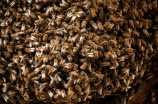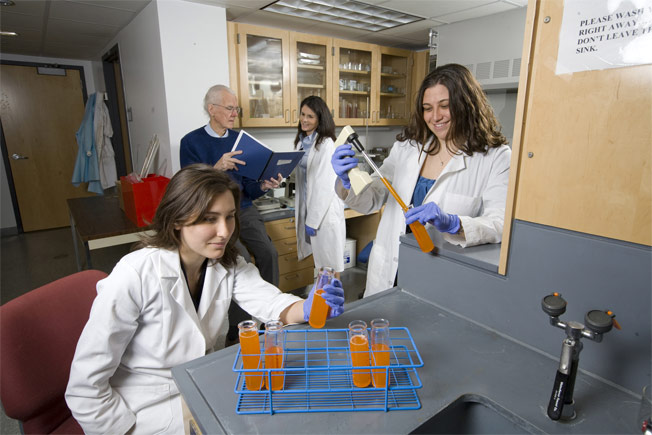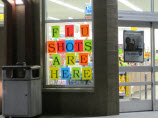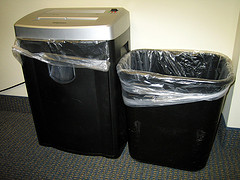While most of us don’t trust spam, if you order something advertised through it, be it pills, knockoff Rolex watches, or software, it will probably end up at your door. That’s one of the many surprising conclusions uncovered by researchers tracking exactly how spam works (PDF) from alpha to omega in the transaction process. [More]
science

The Closer Your Last Name Is To Z, The Faster You Buy
A study finds that the closer your last name is to the end of the alphabet, the faster you make purchasing decisions. And yes, the behavior is ingrained in us based on how we all used to line up in school. [More]

Ads Implant Fake Memories In Your Head
A new study says that really lifelike commercials are really good at tricking our brains into thinking that not only did they actually happen, but that they are scenes from our lives. [More]

Study: Good Cholesterol May Not Be So Good
Conventional wisdom has held that some types of cholesterol may help prevent heart disease, but government researchers have found evidence to the contrary. The findings could change the way doctors treat millions of heart patients. [More]

MRI Shows Apple Stimulates Fan's Brain Like Religion
Apple fanboys are sometimes referred to as “zealots” or “fanatics” in terms of their devotion to their beloved brand and the intensity with which they defend it and proselytize its virtues. Especially in online comments sections. And it turns out that perhaps those descriptions are not too far off. A recently screened BBC doc Secrets of the Superbrands (unfortunately not available for online streaming in the States) analyzed an MRI of an Apple devotee and found that the brand stimulated the same areas of the brain as religious imagery does to people of faith. [More]

Science Says All Our Cell Phone Use Is Driving Bees Crazy
It turns out cell phones distract and annoy more than just drivers, moviegoers, golfers and teachers. According to scientists, bees get all kinds of crazy when cell phone signals scramble their senses. [More]

Study Links Flammable Drinking Water To Fracking
A new study, the first of its kind, has found links between hydrofracking and water getting contaminated so badly that drinking taps burst into flame when exposed to a lighter. [More]

Sitting Can Literally Kill You
If you’ve ever worried that you were slowly dying by spending your days trapped in cubicle-land, you don’t have to worry anymore. You’re right. And according to new research, the threat isn’t merely existential. Sitting for long periods of time set off a chain reaction of events that quicken your shuffle off this mortal coil. [More]

Study: Suicide Rates Climb In Tough Economic Times
According to researchers, suicide rates rise when investments tank and the job market becomes less forgiving, especially among those in the post-college, pre-retirement age range. [More]

Instead Of Returning Stuff That Doesn't Fit In, We Buy More
We’ve all been there. That purple end table that looked so fetch in the store is woefully out of place when you bring it back to your abode. The rational thing to do would be to return the item. According to a new study, instead, what we do is go out and buy more things like it to make it fit in. [More]

Shopping Helps Keep Old People Alive Longer: Study
Regular shopping trips could actually extend the lives of older people, a new study finds. Those who shopped every day were 27% not as apt to die within 10 years as people who shopped only once a week. [More]

Study: HFCS Leads To Much More Weight Gain In Rats Than Sugar
A study from Princeton published in the February issue of the journal Pharmacology, Biochemistry and Behavior (PDF) shows that high fructose corn syrup (HFCS), used as a cheap sweetener in everything from Coke to Progresso soup, is not the same as table sugar, namely for the way that it makes you gain 48% more weight. [More]

Does Sleeping Less Lead To Eating More?
In an attempt to determine the link between sleep deprivation and weight gain, researchers at Columbia University have found that when people haven’t had sufficient sleep, they tend to eat around 300 calories more per day. [More]

People Who Feel Loved Put Lower Value On Material Objects, And Vice Versa
Here’s a new way to make fun of misers. People who feel more loved and accepted by others place a lower value on their physical possessions, according to a new study published in the Journal of Experimental Social Psychology. [More]

New Flu Vaccine Could End Shortages
A shift toward producing flu vaccines using cultures of animal cells inside of steel tanks instead of chicken eggs should make it easier to get the shots ready more quickly to stem pandemics. [More]

Fast Food Calorie Counts Don't Stop Kids From Overeating, Either
A provision in last year’s federal health care reform bill requires all food-serving establishments with more than 20 outlets to post the calorie count of every item on the menu so customers know exactly what they’re getting themselves into. The FDA is taking nationwide an idea that some cities and counties had already put in place. It seems like a good idea in theory, but studies show that calorie counts on menus just make people say “ah, screw it” and order the same amount of food that they would have without the calorie posting–or more. A new study in this month’s International Journal of Obesity shows that children, too, fall into the same delicious caloric trap. [More]




